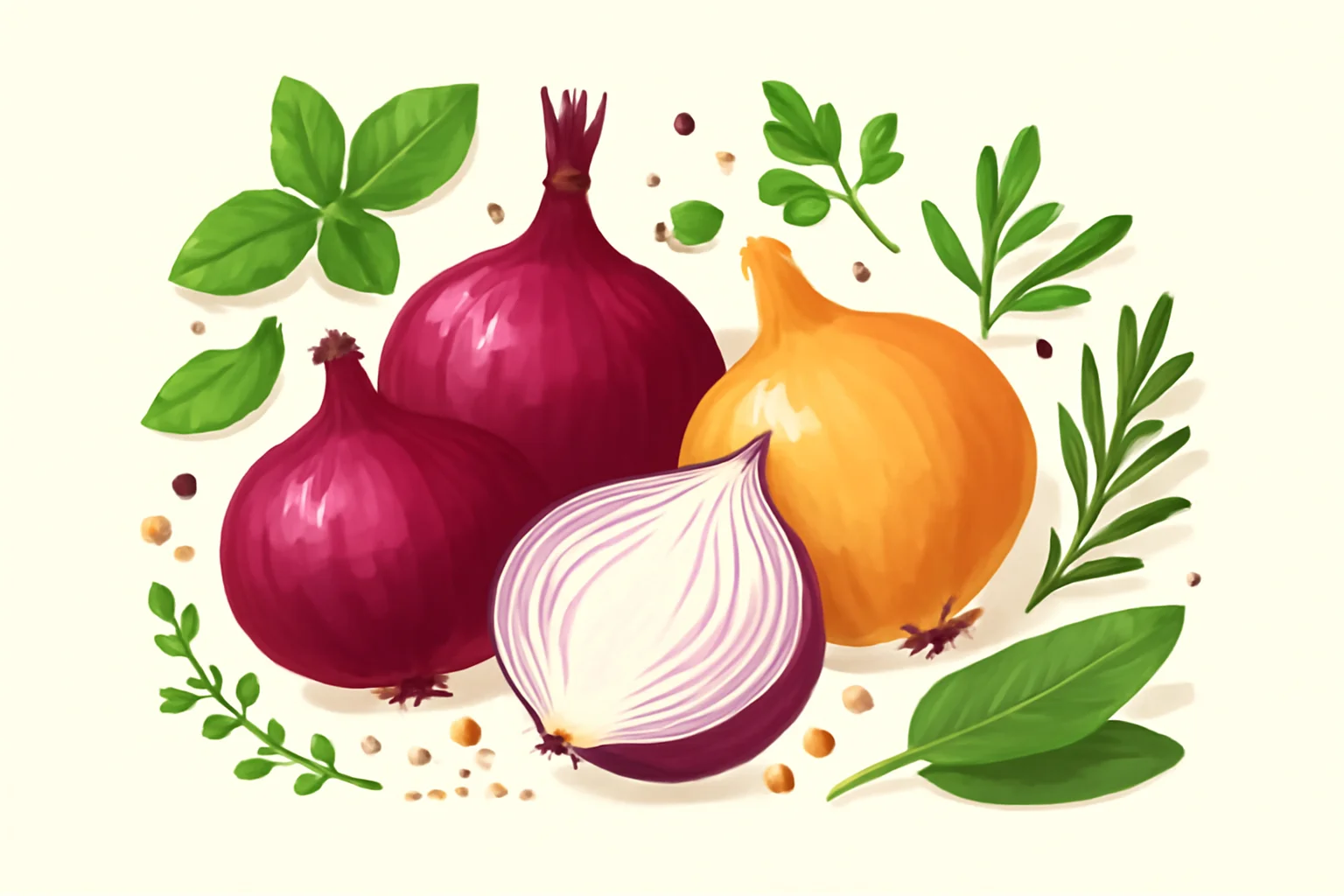
The Beneficial Effects of Cooking Onions on Our Health and Flavors
The cooking onion, also known as onion, is one of the most widespread and versatile vegetables in the world. In addition to flavoring dishes, it has numerous beneficial effects on our health. Onions are not only tasty but also nutritious, as they contain a wealth of vitamins and minerals. The cooking onion is rich in vitamin C, B vitamins, and minerals such as potassium and magnesium. Additionally, it is abundant in antioxidants that help protect our bodies.
The history of the cooking onion dates back thousands of years and has played an important role not only in gastronomy but also in folk medicine. In various cultures, onions have been used not only as a spice but also as a healing agent. There are different varieties of onions, each with its own flavor profile and nutrient content. Besides flavors and health benefits, the cooking onion forms the basis of many dishes, making it particularly popular in cooking.
Next, we will explore the beneficial effects of cooking onions on our health and flavors, demonstrating why it is worth incorporating this vegetable into our daily diet.
The Nutritional Components of Cooking Onions
The cooking onion is an extremely nutritious vegetable that contains numerous vitamins and minerals. It is an outstanding source of vitamin C, which contributes to strengthening the immune system, aids in cell regeneration, and protects the body from the harmful effects of free radicals due to its antioxidant properties.
In addition, onions are rich in B vitamins, which play an important role in metabolism and the health of the nervous system. For example, vitamin B6 helps in the formation of red blood cells, while folic acid is essential for cell growth and regeneration. Among the minerals, potassium is particularly important for the functioning of the cardiovascular system, as it helps regulate blood pressure.
Onions are also rich in flavonoids, which are natural antioxidants that contribute to reducing inflammation. Quercetin, one of the flavonoids found in onions, has been shown in numerous studies to have anti-inflammatory effects, thus helping to prevent chronic diseases such as heart disease and diabetes.
We should not overlook the digestive support provided by onions. The fibers they contain promote the health of the gut flora and contribute to digestive processes. Additionally, the water content of onions can help maintain hydration, which is especially important during hot summer months.
The Cooking Onion and the Immune System
One of the beneficial effects of cooking onions is strengthening the immune system. The vitamin C content of onions is particularly important, as this vitamin plays a fundamental role in the immune response. Vitamin C helps in the production of white blood cells, which form the body’s first line of defense against infections.
The antioxidants in onions, such as quercetin, also contribute to the effective functioning of the immune system. These substances help reduce inflammation, which is important in preventing various diseases. If inflammatory processes persist, they can lead to chronic diseases, so regular consumption of onions can help reduce inflammation.
Onions are also known for their antibacterial and antiviral properties. The sulfur compounds they contain contribute to the destruction of pathogens, so consuming onions can help prevent various infections. It is particularly recommended to include onions in the diet during the autumn and winter months when the incidence of colds increases.
Additionally, onions can help alleviate respiratory problems. The essential oils they contain naturally cleanse the airways, making breathing easier. Moreover, consuming onions may help relieve coughs and sore throats, as their anti-inflammatory effects reduce inflammation in the airways.
The Flavoring Role of Cooking Onions in the Kitchen
The flavoring role of cooking onions in the kitchen is indispensable. It is a fundamental ingredient found in almost every kitchen, forming the basis for many dishes. Its sweet and spicy flavor perfectly complements various foods. Onions are incredibly versatile, as they can be used raw, cooked, roasted, or steamed.
The use of cooking onions is particularly widespread in soups, stews, salads, and sauces. They are perfect for enhancing the base flavors of dishes, as the taste of onions elevates the flavor of other ingredients. For example, the flavor of an onion soup or stew is enriched by the sweet, caramelized taste of cooking onions, resulting in a delicious, hearty dish.
Onions also pair well with various spices and herbs. Olive oil, basil, thyme, or rosemary all complement the flavor of cooking onions. The use of different spices further enriches the flavor experience and adds new dimensions to dishes.
Cooking onions are not only important during cooking but are also excellent for preservation. Pickled onions or onion jam lend a unique and special flavor to dishes, so it is worth experimenting with different preparation methods.
How to Choose and Store Cooking Onions?
Choosing and storing cooking onions is crucial for preserving their nutrients and flavors. When purchasing, it is essential to pay attention to the appearance of the onions. Healthy cooking onions have smooth, shiny skins and show no signs of rot or mold. The onions should be firm, and there should be no overly soft or wilted parts.
It is best to store onions in a cool, dry place, preferably in the dark, to avoid sprouting. The ideal storage temperature is between 4-10 degrees Celsius. Onions should not be stored with potatoes, as the gases emitted by potatoes promote the sprouting of onions.
If you have used part of the cooking onion, it is advisable to wrap the remaining pieces tightly to prevent drying out. Cut onions should be kept in the refrigerator in an airtight container, remaining fresh for 3-5 days.
When using and storing cooking onions in the kitchen, it is worth considering our taste preferences and the characteristics of different varieties. Sweet red onions, white onions, and yellow onions all have different flavor profiles, so it is worth experimenting with them to find the one that suits us best.
It is important to note that this article does not constitute medical advice. For health issues, please always consult a doctor or healthcare professional.

